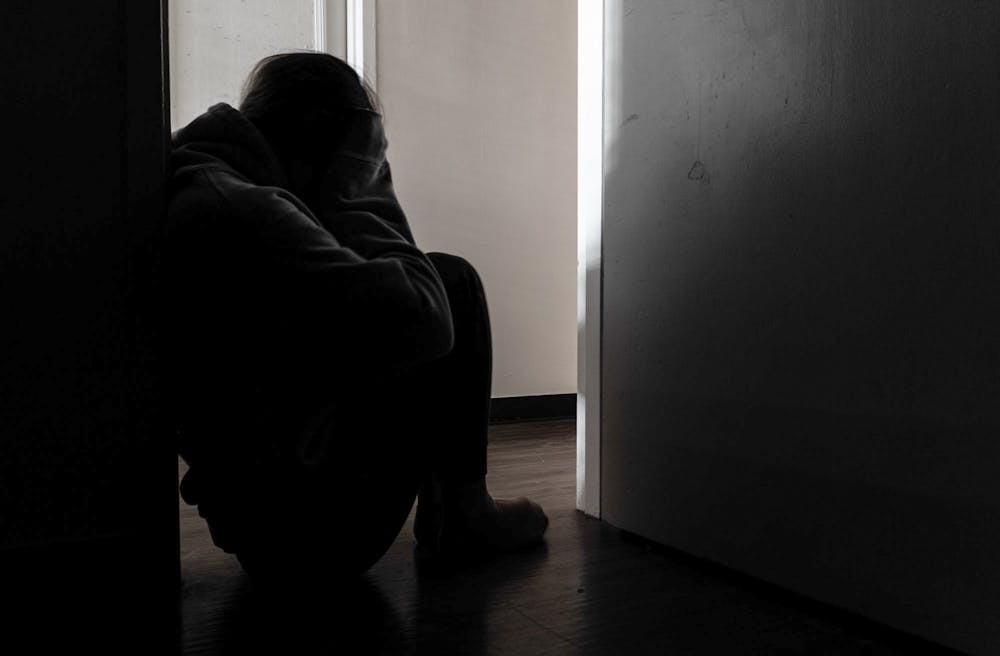When I got home, I stood in the shower for almost an hour and a half. I wanted to be clean — I remember scrubbing my skin so hard that it felt raw to the touch. I stared at the slats of my roommate's bunk bed, who was fast asleep above me.
I didn’t know what to do. Nothing in my life had prepared me for this.
I had no one but friends that I had known for a short semester. My family and closest friends were across the country, and I knew they were asleep with the time difference. I Googled what to do, looking for resources on the university's website, but simply seeing the words nearly brought me to tears.
In the morning, I walked to the hospital on campus and sat in the waiting room for 20 minutes — before getting up and walking back out. I didn’t know the name of the person, only had vague memories of what he looked like and didn't know if he even went to the same school that I did. The only thing I knew was the address of the party, which had hosted maybe over 50 people.
If I wouldn’t even be able to pick him out of a lineup, what was the point of filing a police report? What was the point of being asked invasive questions, over and over, when I just wanted to pretend like it never happened?
For a long time, I blamed it on myself. I would tell myself that I had a lack of character judgment and that it was my fault. When I told someone, the first response was that I shouldn’t have gone out — that scared me enough about what people would think.
But things, especially the way people treat and talk about sexual assault, aren’t going to change if we keep these experiences in the dark. Stepping up is hard, and for many individuals it isn’t an option.
The majority of sexual assaults go widely unreported — a mere 20 percent of female college students who are victims go on to report to the police. And it’s easy to imagine why. Telling people who cared about me immensely that something like that had happened, that I had kept it from them and that they weren’t there is a hard pill to swallow.
In 2020, just 15 students had been found in violation of UNC’s sexual assault policy since 2007. I can name the same number of people off the top of my head who were victims, but were not included in the 15.
The first step is recognizing that UNC, along with most college campuses, has a problem. And the lackadaisical approach to the issue has failed students, staff and members of the community — and will continue to do so until something changes.
In a media statement, UNC Chancellor Kevin Guskiewicz stated, “The data are very concerning and reinforce what we know to be true both on our campus and across the country: sexual assault and sexual harassment are serious problems that deeply affect our community.”
A third of female undergraduates at UNC reported sexual assault — more intensive and comprehensive prevention and intervention courses can change this. Implementing zero tolerance policies for fraternities, places where these assaults are rampant, can help diminish the rates of assault on campus. Outsourcing sexual assault cases and hiring experienced investigators to handle sexual assault cases on campus can be a first step for many universities.
To get the day's news and headlines in your inbox each morning, sign up for our email newsletters.
I still suffer from PTSD, severe anxiety and depression. I’m medicated to make it through the day without flashbacks, visions and nightmares. I'm not religious, but I remember praying one night in California that I would get hit by a bus the next day.
The next morning, I found out that I was accepted to UNC as a transfer student.
I was lucky to be able to transfer schools. It felt a lot like giving up on my California dreams, coming back to my hometown and quitting — something I didn’t do very often. It’s affected my relationships, my family and my entire undergraduate education. I just recently worked up the courage to tell my parents (in Que Chula, because who wouldn’t), and the tears in my mother’s eyes was something that I think will be seared into my mind forever.
Encouraging and creating a safe space for victims to come forward can prevent what happened in my situation from happening again. Erasing the stigma of these types of crimes and violence is one of the first and most significant things a university can do to support its students and campus community.
@rajeeganesan
opinion@dailytarheel.com




